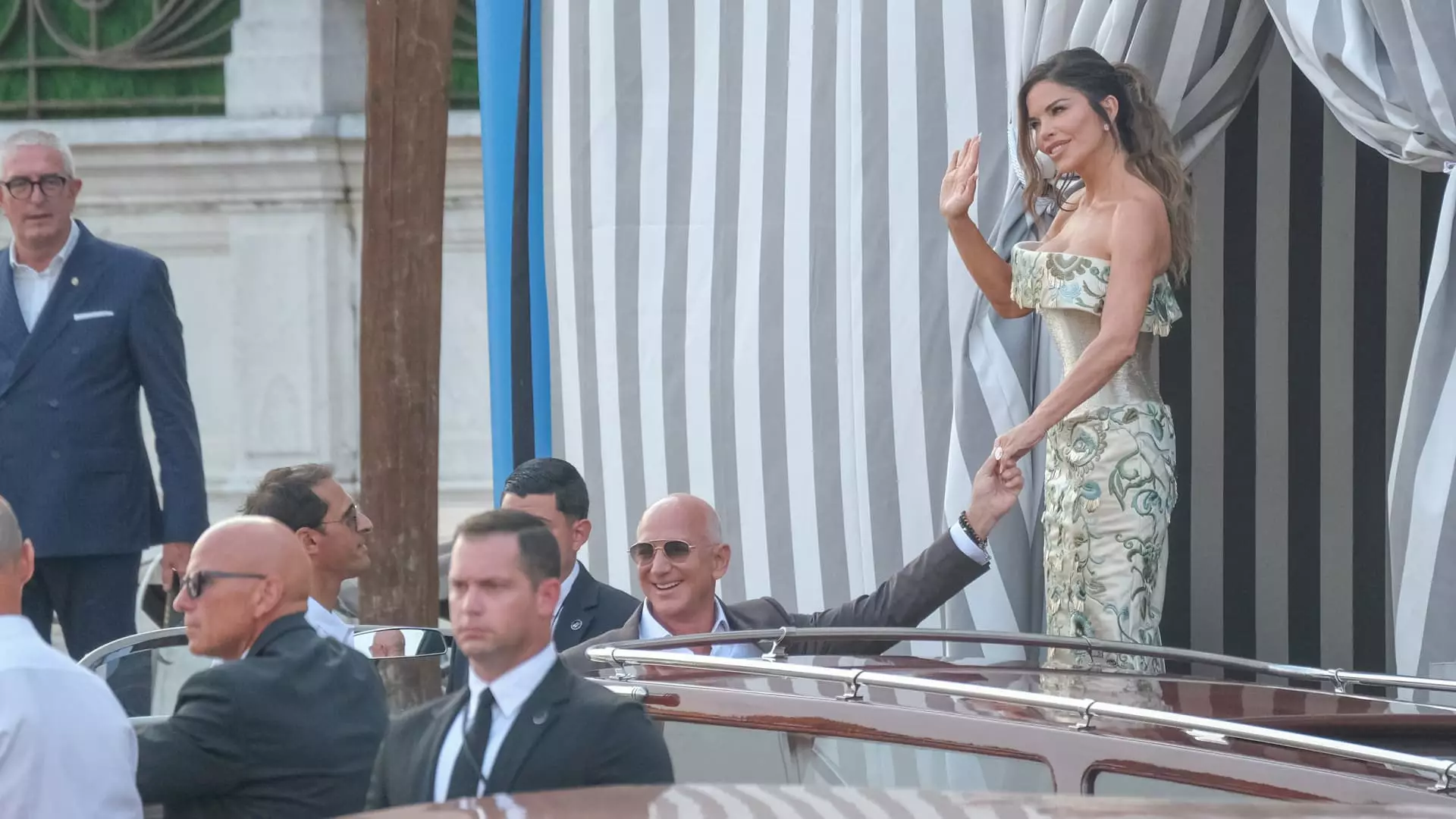The extravagant wedding of Jeff Bezos and Lauren Sanchez in Venice epitomizes the dissonance between immense wealth and the fragile reality faced by ordinary citizens. Celebrated on the private island of San Giorgio and continuing within Venice’s historic Arsenale, the three-day affair reportedly cost upwards of $50 million. This display of unprecedented luxury does more than dazzle—it underscores how the island city, emblematic of cultural heritage and environmental vulnerability, is increasingly commodified as an exclusive playground for billionaires and celebrities.
This is not merely a lavish celebration but a glaring symbol of out-of-touch opulence. While the Bezos wedding has drawn society’s elite—from Bill Gates to Oprah Winfrey and even Ivanka Trump—to bask in the glitz, it is impossible to ignore the ripple of resentment swelling among Venetians and activists who are witnessing their city’s soul being auctioned off to the highest bidder. Venice, with its delicate ecosystem and centuries-old architecture, is not just a backdrop for excess; it is paying the price for this temporary spectacle.
Venice: A City Under Siege by Wealth and Tourism
Venice is emblematic of a broader global dilemma: how to balance economic interests with preservation of heritage and quality of life. Its designation as a UNESCO World Heritage site should offer protection, but in practice, it increasingly attracts the super-rich, turning historic landmarks into private venues and inflating local economies beyond sustainability.
The introduction of tourist fees last year was a tacit admission that mass tourism had run rampant, leading to overcrowding, environmental degradation, and cultural dilution. Even such measures prove insufficient when billionaires commandeer entire hotels and venues for personal celebrations, bringing with them excessive carbon footprints—private jets, yachts, and helicopters—further burdening a city already vulnerable to climate change and rising tides.
Instead of bolstering community and conservation, such events amplify social inequality and environmental stress. The distortions caused by the presence of ultra-rich visitors only exacerbate housing shortages and inflate prices, pushing locals out of the neighborhoods that have sustained Venetian culture for generations.
The Illusion of Philanthropy amid Lavish Spending
Bezos’s reported donations to scientific research on Venice’s lagoon ecosystem might seem like a thoughtful gesture. Yet, these symbolic acts of philanthropy can’t genuinely offset the damage—physical, social, and cultural—that these exorbitant displays of wealth impose.
When one wedding’s cost runs into tens of millions of dollars, a few million in charitable contributions come off as a thin veil attempting to justify excess. It’s a classic example of how billionaire philanthropy often distracts from the broader issues created by concentration of wealth and resource exploitation. What’s needed is systemic change—a shift from treating money as a means of flaunting power to using it responsibly to preserve communities and ecosystems.
Economic Power vs. Cultural Integrity
The Bezos wedding spotlights an often-overlooked tension at the heart of urban and environmental governance: who gets to decide how cities, especially those with rich cultural heritages, are used—and for whose benefit? The presence of the global elite sequestered on private islands and historic venues transforms public spaces into exclusive domains, alienating citizens and eroding the communal nature that originally gave these places life.
Venice’s identity is being hijacked by economic interests that prioritize spectacle and exclusivity over sustainability and inclusivity. Beyond the immediate environmental impact, the social consequences are profound. Residents see their city morph into a stage for the rich, where local voices are drowned out by corporate interests and the machinery of luxury consumption.
A Call for Responsible Stewardship
The challenge this episode presents is not unique, but it is sharpened by the symbolic weight of Venice as a global cultural treasure. The center-wing liberal perspective recognizes the role of wealth in driving innovation and growth, yet insists on the imperative for equitable and sustainable stewardship of shared resources.
Events like the Bezos wedding should prompt reflection on policies protecting heritage cities from appropriation by the ultra-wealthy. Rather than mere token fees or superficial donations, there must be stronger regulatory frameworks that prioritize the rights of local residents and the health of delicate ecosystems over short-term economic gains powered by opulence.
Venice’s plight is a cautionary tale for other historic destinations worldwide. They cannot simply chase the glitter of billionaire spending without risking irreversible displacement and degradation. Balancing prosperity with preservation demands courage and a shift in values—toward shared responsibility, environmental respect, and social equity—that even in the age of immense wealth cannot be sidelined.

